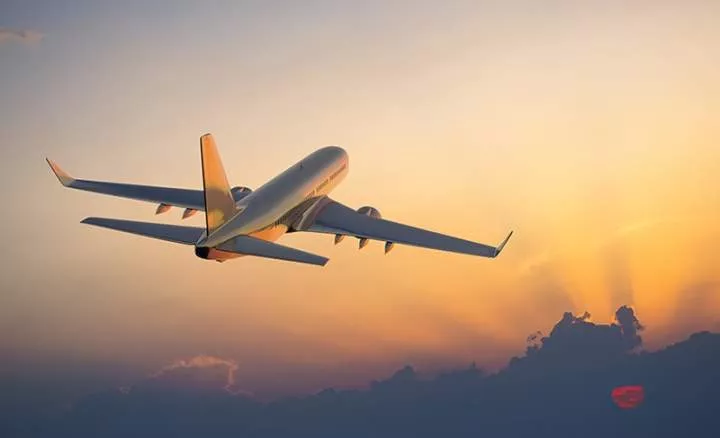![Turbulence can be a devastating experience [ELMENS] Turbulence can be a devastating experience [ELMENS]](https://static.netnaija.com/i/wPKL0vgdKVB.webp)
Due to global warming, we may experience turbulence on several flight routes in the future.
For many people, turbulence is the most unpleasant aspect of flying. Despite their astonishing frequency, they can often be frightening and even disturbing to experienced passengers.
They are also more common on some routes than others. This article reveals which routes these are.
Dramatic scenes occurred on a flight from London to Singapore a few days ago. There was severe turbulence that killed one person from a heart attack and injured many others. Turbulence is the worst part of flying for many travellers, and this latest incident may increase their fear of it.
The online portal Turbli has been created to help travellers prepare for this. Turblianalysed over 150,000 routes and prepared a list of ten routes where turbulence occurs most often.
Which routes experience the most turbulence?
The nearly 1,900-kilometer route between Santiago and Viru Viru International Airport in Bolivia has been classified as the most turbulent air route in the world. Second place went to the route between Almaty in Kazakhstan and the Kyrgyz capital Bishkek
Domestic flights in Japan and China were the most represented in the ranking. This is mainly due to the high density of strong wind currents. The flight route with the most turbulence in Europe is the route from Milan to Geneva.
10 routes with the most turbulence
Santiago (SCL) - Santa Cruz (VVI)
Almaty (ALA) - Bischkek (FRU)
Lanzhou (LHW) - Chengdu (CTU)
Chūbu/Centrair Airport (NGO) - Sendai (SDJ)
Milan Malpensa Airport (MXP) - Geneva (GVA)
Lanzhou (LHW) - Xianyang (XIY)
Osaka (KIX) - Sendai (SDJ)
Xianyang (XIY) - Chengdu (CTU)
Xianyang (XIY) - Chongqing (CKG)
Milan Malpensa Airport (MXP) - Zurich (ZRH)
What is the probability of turbulence during flight?
While many passengers experienced light turbulence, severe turbulence is much less common. As reported by the British newspaper, Independent, only one in 50,000 flights are affected by severe turbulence.
Paul Williams, a professor of atmospheric sciences, explained to CNN that there is a scale that can be used to measure the strength of turbulence. According to this scale, there are three types of turbulence.
With light turbulence, it is still possible to move around the cabin, while moderate turbulence will keep the seat belts tight and make walking almost impossible.
The worst type of turbulence, however, is severe turbulence, which is stronger than gravity and can throw people around in the cabin if they are not wearing seat belts. This type of turbulence can cause serious injuries, as happened on a Singapore Airlines flight on May 21.
More frequent turbulence due to global warming?
Due to global warming, we may experience turbulence on several flight routes in the future. In particular, severe turbulence may increase significantly worldwide by 2080. According to Williams, however, this does not mean that flying will become less safe. Planes are built to withstand even the worst turbulence. The best way to minimise the risk of injury is to wear seat belts at all times during the flight.














![One Dies, Others Injured As Machine Malfunctions [VIDEO] One Dies, Others Injured As Machine Malfunctions [VIDEO]](https://img.netnaija.com/hsi/aHR0cDovL3d3dy55YWJhbGVmdG9ubGluZS5jb20vd3AtY29udGVudC91cGxvYWRzLzIwMTcvMDcvbWFjaGluZS5qcGc=/images/machine.jpg)



Comments